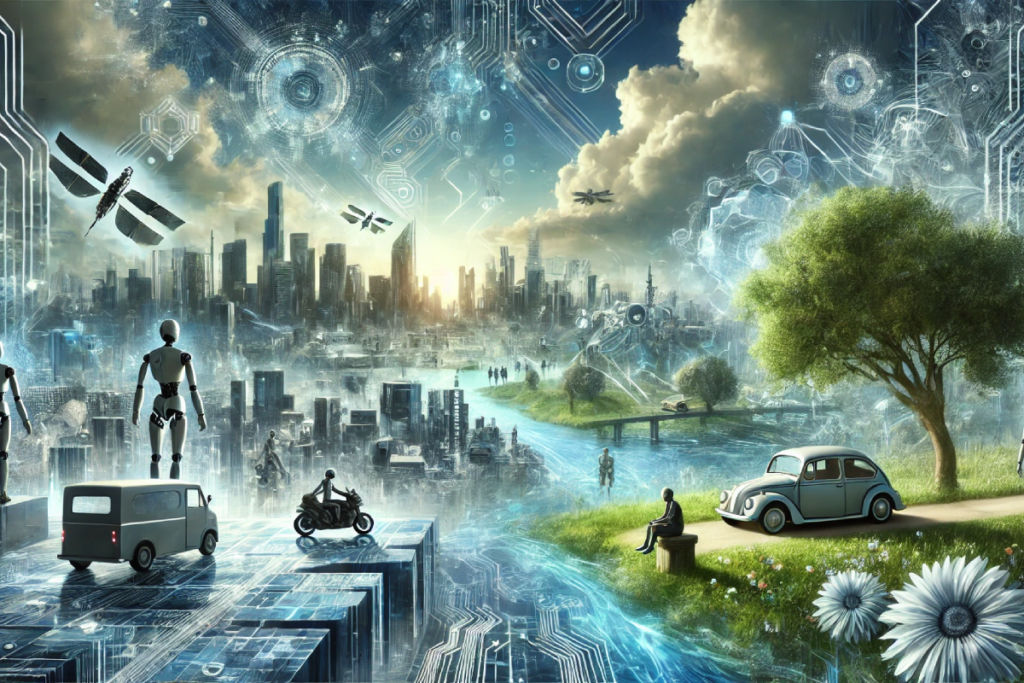Artificial Intelligence (AI) has rapidly evolved over the past decade, transforming industries and reshaping the way we live and work. From autonomous vehicles to AI-driven healthcare solutions, the possibilities seem endless. However, as AI continues to advance, questions arise about what the future holds. Will AI lead to unprecedented levels of innovation, or will it pose challenges that humanity must address? In this blog post, we will explore the future of AI, examining potential advancements, ethical considerations, and the impact on society.
Advancements in AI Technology
The future of AI is likely to bring even more sophisticated technologies that push the boundaries of what machines can do. High-volume keywords: “AI advancements,” “future AI technologies,” “artificial intelligence development.”
Enhanced Machine Learning and Deep Learning
Machine learning and deep learning are at the core of AI’s evolution. In the coming years, these technologies are expected to become more advanced, enabling AI systems to process larger datasets, make more accurate predictions, and even understand complex human emotions and language nuances.
Example: AI algorithms could be developed to interpret and predict human behavior with greater precision, leading to improved customer experiences, smarter personal assistants, and more effective healthcare diagnostics.
Autonomous Systems
The future will likely see significant progress in autonomous systems, including self-driving cars, drones, and robots. These systems will become more reliable and capable of performing tasks that require higher levels of intelligence and decision-making.
Example: Autonomous vehicles may become mainstream, reducing traffic accidents and providing mobility solutions for the elderly and disabled.
Ethical Considerations and Challenges
As AI technology advances, it raises ethical concerns that must be addressed to ensure responsible development and deployment. High-volume keywords: “AI ethics,” “AI challenges,” “ethical AI development.”
Privacy and Data Security
One of the biggest concerns surrounding AI is privacy. As AI systems rely on vast amounts of data, there is a risk that personal information could be misused or fall into the wrong hands. Ensuring that AI respects privacy and adheres to strict data security standards will be crucial.
Example: Companies may need to implement stronger encryption and data anonymization techniques to protect user data while still allowing AI to function effectively.
Bias and Fairness
AI systems can inadvertently perpetuate biases present in the data they are trained on. Addressing issues of bias and fairness is essential to prevent AI from reinforcing social inequalities or making unfair decisions.
Example: Developing transparent AI algorithms that are regularly audited for bias could help mitigate these risks and promote fairness.
The Impact of AI on Society
The integration of AI into various sectors will have profound effects on society, influencing everything from job markets to personal lives. High-volume keywords: “AI societal impact,” “AI future jobs,” “AI and society.”
Job Market Disruption
AI is poised to automate a wide range of tasks, leading to changes in the job market. While some jobs may be lost to automation, new opportunities will also emerge in AI development, data analysis, and AI maintenance.
Example: Workers will need to adapt by acquiring new skills and focusing on roles that require human creativity, empathy, and complex decision-making.
Healthcare Revolution
AI has the potential to revolutionize healthcare by providing more accurate diagnoses, personalized treatment plans, and improved patient outcomes. AI-driven healthcare could lead to longer life expectancy and better quality of life.
Example: AI could assist doctors in identifying diseases earlier, leading to more effective treatments and potentially saving lives.
Conclusion
The future of artificial intelligence is full of promise, with advancements that could enhance every aspect of human life. However, the challenges and ethical considerations associated with AI development must be carefully managed to ensure that these technologies benefit society as a whole. As we move forward, a balanced approach to AI innovation—one that prioritizes both progress and responsibility—will be essential in shaping a future where AI serves as a force for good.


